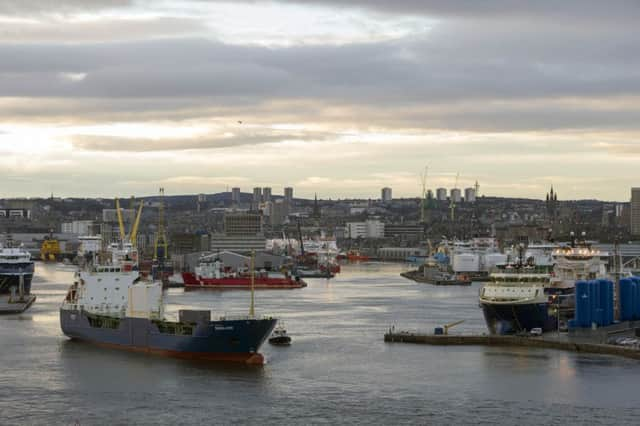Consortium fined £280,000 for polluting Aberdeen salmon rivers


The consortium behind the new road caused silt pollution in the noted salmon rivers the Dee and Don between 2015 and this year while building the £745 million Aberdeen Western Peripheral Route.
The Scottish Environment Protection Agency (SEPA) used new enforcement powers to secure the money for communities affected by the pollution. Almost £50,000 extra has also been claimed to cover the cost of investigations.
Advertisement
Hide AdAdvertisement
Hide AdA total of eight local initiatives will benefit, with the largest sum of £150,000 going to the Dee District Salmon Fishery Board for schemes to diffuse pollution.
SEPA said the Construction Joint Venture (CJV) gave the funding in an ‘offer of enforcement undertaking’ - a formal offer by an organisation to make amends for an offence by improving the environment or communities affected.
Agency chief executive Terry A’Hearn said: “It’s right that the Construction Joint Venture should offer this significant enforcement undertaking in recognition of the environmental impact of their actions, which resulted in a series of silt pollution incidents impacting numerous tributaries to Aberdeenshire rivers, the Dee and the Don.
“We are delighted that CJV has become one of the first operators to use the new enforcement undertaking. The CJV has stepped forward, accepted responsibility and set out to put things right.
“An enforcement undertaking not only compels those who breach the law to make amends, it instils a more positive working relationship based on understanding the duty we all share in safeguarding our natural environment”.
Richard Gledson, chairman of the Dee District Salmon Fisheries Board, said: “Silt pollution from the construction of the Aberdeen Western Peripheral Route gave us great cause for concern, particularly as the River Dee is designated as a special habitat for both salmonid fish and fresh water pearl mussels, which rely on a delicate ecosystem to feed and spawn.
“We welcome both the immediate response by SEPA, including the temporary restriction of construction activity, their investigation, and today’s enforcement undertaking.
“This will provide for environmental improvements that will go some way to offsetting the impact on local communities and the environment.”